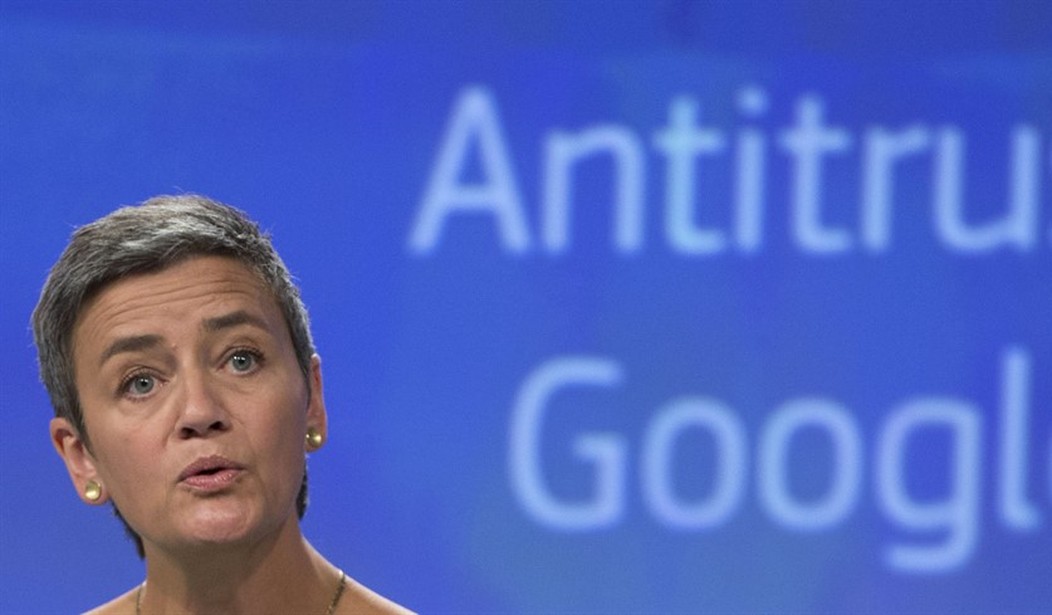The firing of James Damore has raised questions not only about Google’s internal tolerance but about whether it should be trusted to filter the entire internet. At National Review, Hoover Institution fellow Jeremy Carl argues that we’re already seeing the first steps on a slippery slope toward Google deciding who has a voice:
The evidence of Silicon Valley’s hostility to the Right is everywhere. Prominent conservatives from Michelle Malkin to William Jacobson to Dennis Prager (just to name a few NRO contributors) — and an even greater proportion of those whose politics lean farther to the right, many of whom do not have access to mainstream media and rely on social media to fund their work — have seen themselves banned from major Internet platforms or had their content censored or demonetized. In most cases they are not even given grounds for their punishment or means of appealing it. While some more “mainstream” conservatives may not feel excessively troubled by the banning of more provocative voices farther to the right, in taking this attitude they make a tactical, strategic, and moral mistake. They do not understand how the Left operates. When voices farther to the right are removed, mainstream conservatives become the new “far-right extremists” — and they will be banned with equal alacrity.
As someone who once had his entire You Tube account deleted for no discernible reason, I’m certainly open to the idea that Google’s absolute power to ban people without explanation or appeal can be upsetting. Carl argues the solution is to regulate the company like any utility that has monopoly power:
Given their market-dominant positions, these companies control a substantial share of the information that Americans consume and therefore should be run in a politically neutral fashion. Instead, they have doubled down on politically motivated censorship — demonetizing right-wing content providers (unilaterally declaring their content to be unfit to have commercials) or even banning them while doing nothing about politically favored ones.
But there are solutions to this abuse of monopolistic power.
These solutions need not be excessively burdensome or intrusive. They could focus on creating a simple regulatory regime that would ensure these monopolistic companies:
- Do not censor any content that is compliant with the First Amendment to the United States Constitution; and
- Do not fully demonetize any user’s content, pulling ads from posts only when the advertiser has requested such action be taken.
My general tendency is to be suspicious of the need for government regulation of private companies. Carl writes that in this case, where the goal is to ensure the First Amendment is respected in the social media sphere, there is no time to worry about philosophical purity. He also points out that, in Europe, Google was heavily fined this summer for antitrust violations. From the NY Times:
Google suffered a major blow on Tuesday after European antitrust officials fined the search giant a record $2.7 billion for unfairly favoring some of its own services over those of rivals.
The penalty, of 2.4 billion euros, highlights the aggressive stance that European officials have taken in regulating many of the world’s largest technology companies, going significantly further than their American counterparts.
Should we regulate Google to prevent similar distortions to public discourse? My main concern here is the possibility of unintended consequences. As good as it might sound to have some check on Google’s ability to shut conservative voices down on a whim, inviting the government to take an oversight role seems fraught with potential downsides. The government, once given such authority, may not settle for the role of neutral traffic cop for speech online. The involvement of federal regulators could invite future taxes or regulations that go well beyond what Carl is proposing. In short, once the government is given a foothold, there is every reason to think the number of regulations would grow and not always in the service of more freedom.
That’s my take but I’ll give Tucker Carlson the last word. He argued on his show last night that Google can’t be trusted and therefore ought to be regulated as a monopoly utility. This is a five-minute clip and he gets to the regulation part near the end.
https://www.youtube.com/watch?v=ke9K4Rt8SPk








Join the conversation as a VIP Member